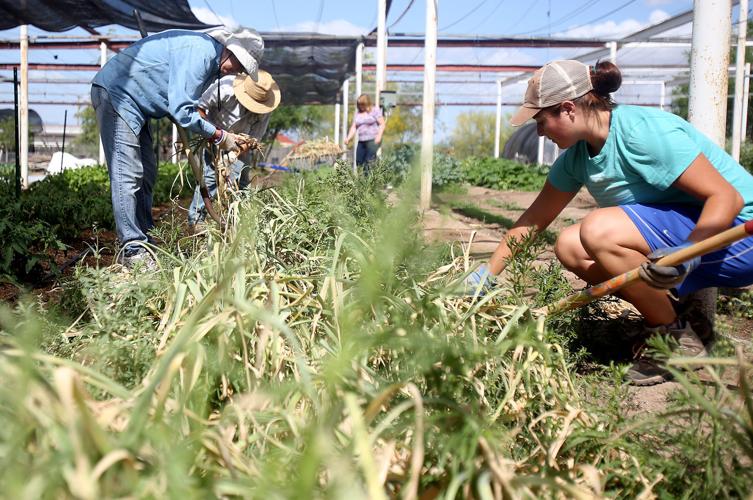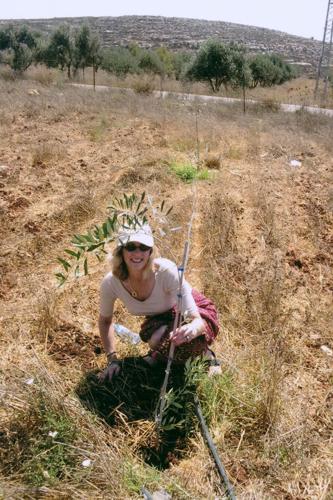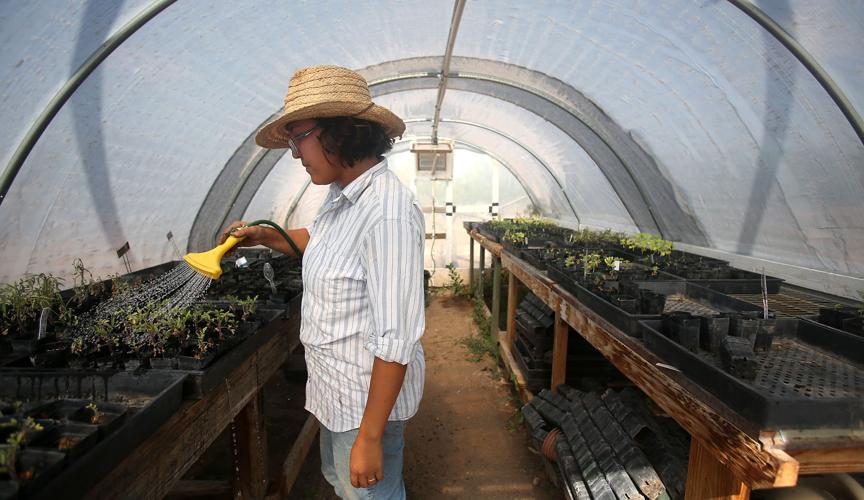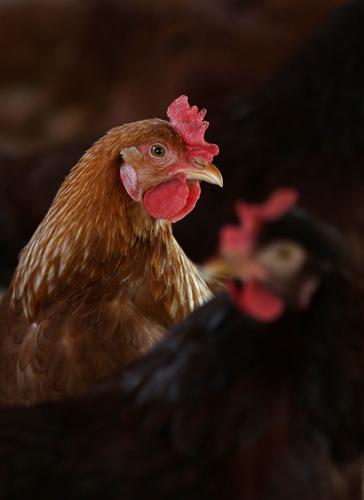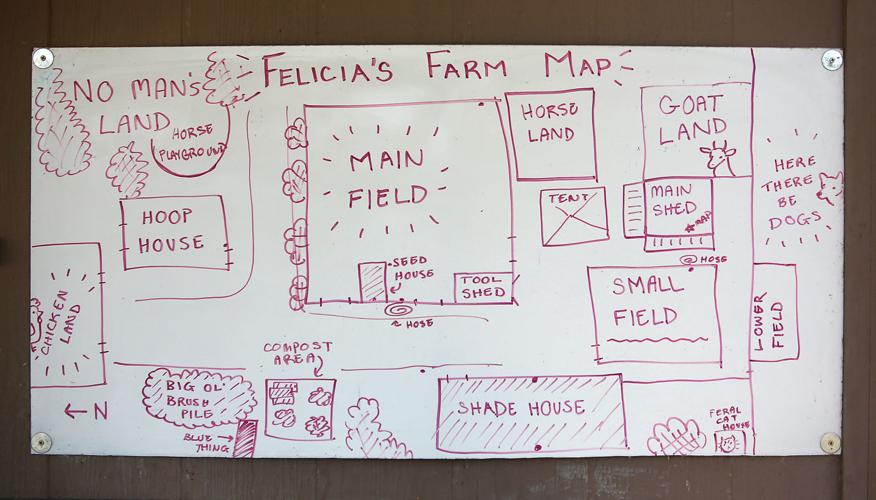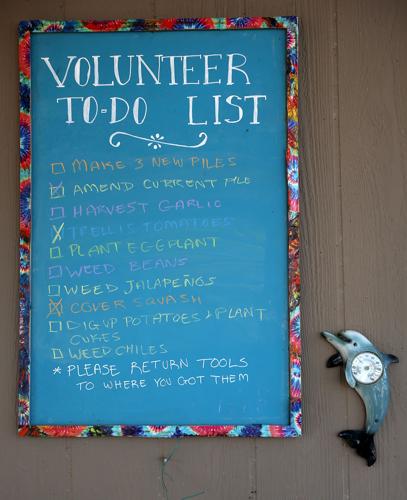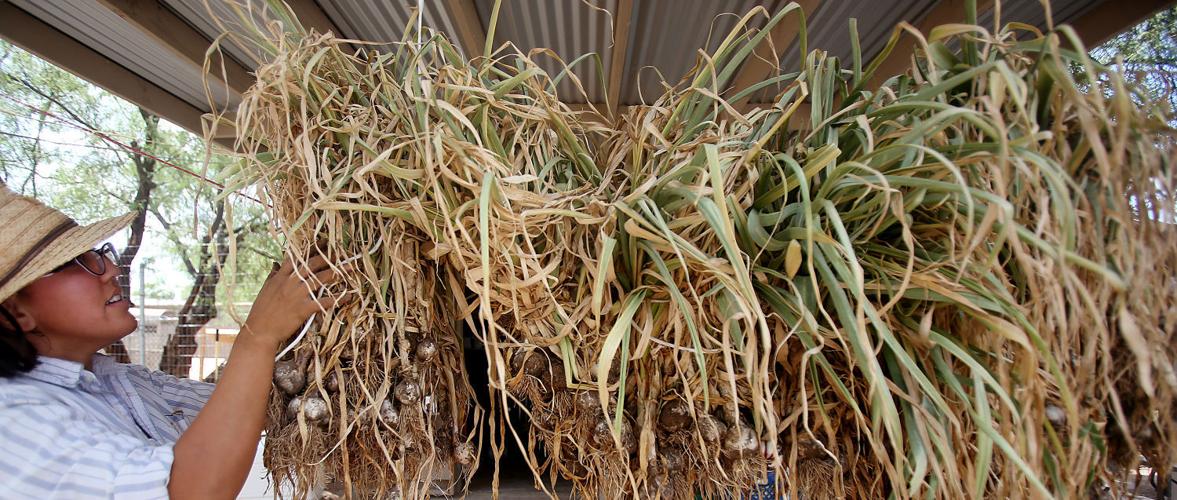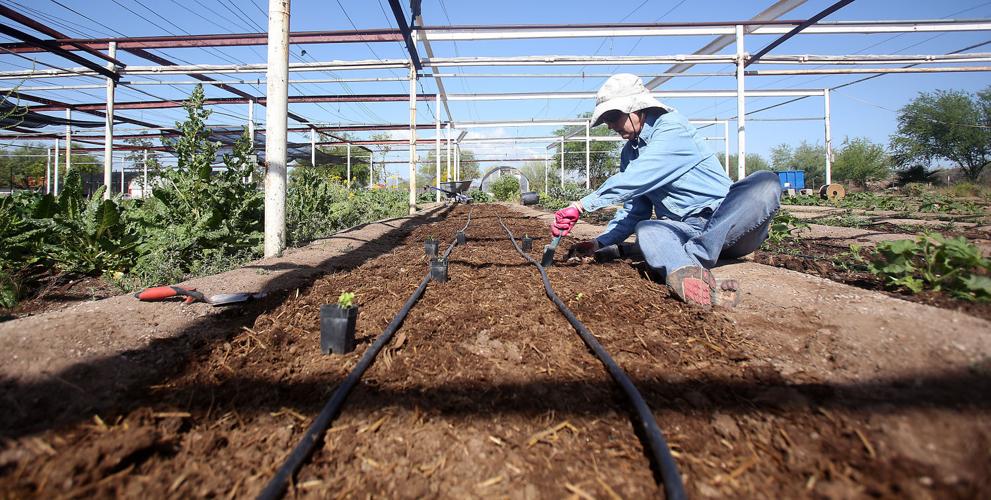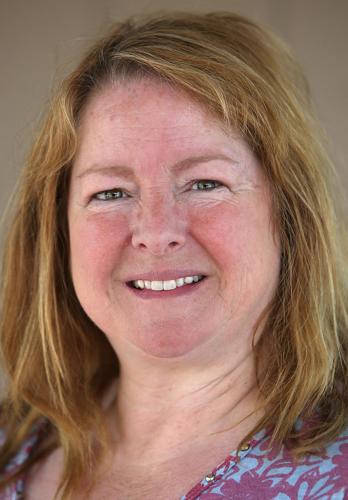Felicia Ann Cutler’s dream was to feed the hungry.
So after she passed away at the age of 48, her husband, David, brought new life to that dream by converting the tree nursery behind their home into a garden.
Not just any garden, though.
Felicia’s Farm organically grows fruits and vegetables, collects eggs from its 480 chickens, and donates 100 percent of its harvest to Casa Maria Soup Kitchen, a local charity that hands out lunches and bags of groceries to Tucson’s needy families.
The farm also serves as a place schools use to teach special needs students work skills, a spot for Cancer Conquerors to grow cancer-fighting vegetables and a site where individuals, groups and families can volunteer.
A LOVE STORY
Together for 33 years — and married 28 — David and Felicia met on a tour to Israel when they were 16 years old.
Felicia was a student at Sahuaro High School. David lived in Los Angeles, but once he finished high school, he moved to Tucson to attend the University of Arizona — and to be close to Felicia.
“As soon as I got out, we got married and started a family four years later,” David said. “Up until she passed, she was my high school sweetheart and the love of my life.”
David loved Felicia’s giving spirit.
“She was a caring, giving, outgoing person,” David said. “She helped and loved everybody. She just gave and gave.”
Even when Felicia got sick with Behcet’s disease — a rare autoimmune disorder — she continued to give, and she did so with a smile, David said.
“She was sick for a long time,” David said. “No matter how sick she was, she always put on a smile to help people.”
Felicia was sick for about 18 years, and was diagnosed with more than 15 different illnesses during that time, David said. She died June 6, 2009, of a pulmonary embolism caused by the disease.
David wanted Felicia’s generosity to live on.
“I decided to set up the farm because it hit me that what she loved to do was care for people and feed people,” David said. “I’m sure she’s looking down and she’s happy people remember her and is happy people are doing what she did her whole life for others.”
A GIVING NATURE
Luis Altamirano, the farm’s livestock manager, started working on the property when it was a tree nursery. His wife cleaned the Cutler family’s home, and both got to know Felicia.
“She was the kind of lady who was always looking for ways to help people,” Altamirano said. “Felicia prided herself on donating stuff.”
The mother of three, Felicia especially liked helping children and donated clothes and other items to Casa de los Niños, Altamirano said.
With the help of Altamirano, family, and friends, David started planting vegetables in wooden planters.
Once the trees were cleared — there were thousands — they designed garden beds so they could grow more.
They also built a chicken coop.
“Our first chicken coop was for 75 to 125 chickens,” Altamirano said, adding that a local roofing company donated materials.
Now, the farm has the capacity for 500 to 700 chickens, in coops that allow for 5 square feet per chicken.
The farm gained nonprofit status in 2011, and has since nearly doubled the amount of food produced.
“We started out with a small amount of chickens and vegetables,” Altamirano said. “We’ve grown a lot.”
FARM OPERATIONS
About 2 of the property’s 6 acres are farmed, said farm manager Sofia Montes.
Everything is grown according to the seasons, including cilantro, corn, tomatilloes, beans, kale, peppers, tomatoes, garlic, onions and melons. And they do it naturally, Montes said.
Rows of zinnias and sunflowers are also grown, so they can be donated to hospice facilities.
A section of the property was recently cleared by a group of Intuit employees to make room for “Bee Land,” which consists of five bee boxes. The bees will pollinate the crops, and honey will eventually be harvested and donated.
Montes said her goal is to make the farm fully sustainable.
Waste from goats, chickens and horses is collected for compost.
“We have a lot of poop, which is great,” Montes said. “Because we don’t have to buy fertilizer ... Chicken manure is potent. Too potent. It’ll kill your plants if you don’t compost it.”
They collect seeds so they don’t have to buy them, and use solar power for the chicken coop. Montes also hopes to collect rainwater during monsoon season, to help reduce the $12,000 yearly cost.
The farm, located north of the Rillito River, is primarily funded by David, who is a CPA by profession, with a practice that is national and international. He said he feels fortunate that he’s able to help the community.
“I give probably 30 to 50 percent of my income to charity,” David said. “I love helping people. It’s pretty much what I live for. I’m pretty blessed that I’ve been given the opportunity to have the kind of income to do it with.”
Felicia’s Farm is in the process of diversifying funding sources by getting grants and other donors to help support the farm, said Carolyn Owens, the farm’s fundraising consultant.
“We want to include the community in supporting the farm’s efforts,” Owens said.
Once the River Road farm is fully planted, David hopes to also start farming on a 40-acre property he owns in Marana.
DONATIONS
Volunteers from the community help Montes harvest the vegetables and fruits.
The produce is then loaded up and taken to the soup kitchen. Last month, the farm donated 1,000 pounds of food to Casa Maria.
On a recent delivery, Altamirano delivered 59 pounds of collard greens, 6 pounds of chard, 3 pounds of parsley and 65 pounds of onions.
Casa Maria currently hands out about 600 single bag lunches, 600 servings of soup and 250 grocery bags for families seven days a week, said Brian Flagg, the nonprofit organization’s organizer.
“The soup kitchen gets a lot of boxed, processed foods, so the vegetables are good,” Montes said.
Montes’ eagerness to grow what the free kitchen’s community wants has left an impression on Flagg.
“Sofia is cool,” Flagg said. “She spoke with all of the women en español and now, she’s growing what they asked for.”
Some of the produce from Felicia’s Farm goes into soups, but the majority goes into the grocery bags for families, Flagg said.
“It’s really good stuff,” Flagg said.
Deliveries are currently made once a week, but Montes said as summer starts and there’s more to harvest, they will bring food to the soup kitchen two or three times a week.
SOUP KITCHEN
A soup pot full of fresh eggs from the farm sat inside the busy soup kitchen, waiting to be hard-boiled.
“The eggs are really good and are a favorite in the lunches,” Flagg said. “They’re good for them.”
The chickens at Felicia’s Farm produce an average of 16 to 18 dozen eggs daily, Altamirano said. About 100 dozen eggs a week are donated to Casa Maria. Last year, the soup kitchen received more than 2,800 dozen eggs.
Altamirano hopes to increase that number. “The goal is 5,000 dozen for 2015,” he said.
Altamirano cares for the chickens. He pets them, feeds them, and lets them out of the coop occasionally.
“But a bobcat lives over there,” he said pointing toward the fence. So they don’t get to wander too far.
“We are trying to keep the happiest chickens possible,” Altamirano said.
VOLUNTEERS
A volunteer to-do list is posted on the outside wall of a shed. It lists things like weeding, clearing beds and planting. Anyone can volunteer at the farm. And they can do so on their own schedule during the farm’s operating hours.
Volunteering at the farm also counts as community service hours.
Prior to becoming a part-time farm employee, Cathy Lowling volunteered.
“My daughter and I bonded over purple lettuce,” Lowling recalled. “Kids don’t see the food in real life. I learned a lot being out here and trying new things. I think if kids can connect with one new thing, it’s great.”
Melissa Wiley, a store manager, recently worked on pulling garlic out of the ground. It was her first time volunteering at the farm.
Wiley’s reason for volunteering was to fulfill her community-service obligation to clear up a traffic ticket, but she plans on returning.
“My kids and I used to volunteer for the Humane Society,” Wiley said. “If we knew this was here, we’d have been out a long time ago. It was fun. We harvested garlic and mixed compost. It felt good.”
HANDS ON LEARNING
An average of 60 children a month from local schools and community organizations volunteer at the farm. It teaches them about where food comes from and how they can impact hunger in the community.
Catalina Magnet High School uses the farm for its community-based instruction program for special needs students.
Students plant, harvest, pull weeds, collect eggs — basically anything that needs to be done.
“It teaches them to work on their fine motor skills, having patience and a lot of skills that they can hopefully go into the community and use for work,” said Wanda Pacheco, a teacher’s aide. “They’re always learning something and gaining experience.
“It’s a good opportunity for them.”
Working with other people on the farm also helps the students with their communication, Pacheco said. “It matures them.”
Young adults from Chapel Haven West, which offers support for adults with cognitive disabilities, work on the farm to learn about adult life, Lowling said.
“They come out four times a week,” Lowling said. “It helps us and it helps them learn to work, and they are able to have a little work experience going into adult life.”
It also partners with Satori Charter School to teach students about farming, sustainability and hunger in the community and how to make a difference. An average of 25 students from the school visit the farm each week.
LABOR OF LOVE
Felicia’s Farm’s four employees take its mission to heart.
Montes, who graduated with a master’s degree in environmental science from the UA in December, started working Felicia’s Farm in January.
She was surprised to get such a job right out of school, rather than a commercial job.
“It’s great that I can use my skills for something I feel so good about,” Montes said. “I’m not selling my soul.”
Lowling has been around the farm for about five years. She said it’s been fun to watch it go “from very little to a lot and seeing more people get involved.”
“I’m pleased that some family is getting really good fresh food,” Lowling said.
As the farm’s longest-tenured employee, Altamirano loves the variety of work he gets to do.
He especially loves knowing that he’s helping people.
“When I go to Casa Maria and see the people, they really need help,” Altamirano said. “And to be able to do that with my job is good.”
For David, the farm is a living part of Felicia.
“It’s nice to get up every day and realize there’s still a piece of her with me, the kids and the community,” he said. “It’s been beautiful.”


